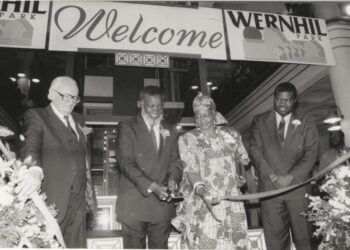
By Enos Kamutukwata
In Part 1 of my opinion piece, I discussed the rise of Namibia as a hub for international conferences, largely driven by a strategic focus on MICE tourism (Meetings, Incentives, Conferences, and Exhibitions) and the urgent need to revive Namibia’s tourism industry post-pandemic.
While this initiative is commendable and offers significant benefits to our broader economy, it has also sparked a critical debate: Why are ticket prices so high, and are these events inadvertently excluding ordinary Namibians from the crucial conversations at these summits?
Why Tickets Are So Expensive
One key factor driving high ticket prices is the significant cost associated with hosting large-scale international events. Many of these conferences are convened by global event companies — in a way, we should show gratitude towards these event conveners as a country – as they not only bring their expertise but also their networks of international attendees and speakers.
Even if one is not in events management, it is easy to observe that expenditure on venue hire, catering, accommodations, compensation for high-profile speakers, marketing, branding, and exhibitions all contribute to the overall cost of the event.
To put it simply, the cost to organise these events is high, and much of that burden is passed on to attendees through ticket prices. Hence, the conference owners still need to make a profit, and with their primary audience being global delegates, tickets are priced in US dollars.
Namibians excluded
Another misconception, or perhaps a sense of unwarranted entitlement, often reflected in the media and social media discussions, is that these conferences should primarily serve ordinary Namibians. The reality is that these events are designed with global participation in mind, often featuring international speakers and catering to the needs of international delegates. While it’s understandable to feel that locals should have a prominent role, this may sound harsh, but these events are not Namibian events, they are international events hosted in Namibia.
The primary focus for Namibia to host these events is to attract economic activities that will create jobs for Namibians and earn foreign currency directly from the events as well as the spillover effects. Of course, if the schedule and program activities allow, Namibians should and will get opportunities to interact, network with and benefit from these events. However, filling the venues solely with Namibians—while organisers are expecting global delegates who have travelled from afar and from whom they will expect to earn revenue for covering the events and drive local economic activities—would pose a significant challenge.
Lessons from Cape Town and Kigali (Rwanda)
Writing reminded me of a conversation with Robert Shipanga, where he pointed out that in Cape Town (Century City Conference Centre), “there’s always something happening—international indabas, exhibitions, and conferences almost every weekâ€. Similarly, Rwanda’s Kigali Convention Centre frequently hosts major summits and events – hosting 26 global events last year alone.
According to the International Congress and Convention Association (ICCA), Cape Town ranks as the top destination for international conferences and events in Africa, with Rwanda close behind in second place. For Cape Town, In the next 12 months, 11 international conferences are set to bring over 6,000 delegates to Century City, generating approximately N$40 million for the local economy, compared to six conferences last year, per Daily Southern & East African Tourism Update publication. These two cities provide not just a glimpse, but a clear business case and significant value for Namibia to fully leverage business tourism.
A balancing act
The prestige and international standard of these events come at a price, but the benefits they bring to Namibia’s tourism, hospitality, and business sectors are significant. However, to ensure that the benefits of these conferences are felt by both international visitors and local stakeholders, there needs to be a balance.
While ticket prices may remain high to cover costs, more efforts can be made to include Namibians in these events—whether through reduced-price tickets, local business partnerships, or fostering our own event organisers to host globally competitive events in the near future. The government and private sector should collaborate to create opportunities for Namibians in the event management industry, paving the way for more inclusive and affordable events.
*Enos Kamutukwata is an economist, and these views are his own. He can be reached on Twitter/X: @EnosMcManni.










